Julia Wallace:
Name: Julia Wallace (née Dennis).
Class: Murder Victim.
Born: Unknown or 28/04/1861 (some confusion remains over her identity).
Died: 20/01/1931.
Bio: Julia Wallace was murdered in her own home at 29 Wolverton Street on the 20th of January, 1931. She was raised as a governess and was proficient in the arts. Her own watercolour paintins adorned the parlour in which her body was found, as well as the piano which she played. She is said to have been able to speak French.
At the time of her death she was suffering from some sort of flu or bronchitis.
William Herbert Wallace:
Name: William Herbert Wallace.
Class: Murder Suspect and Husband of Victim.
Born: 29/08/1878.
Died: 26/02/1933.
Bio: William Herbert Wallace was a follower of stoic philosophy, and can be seen as quite reserved and “by the books”. He attempted to start a life working abroad in Calcutta and Shanghai, but was forced to return to England owing to kidney disease. After meeting and then marrying Julia in 1914, he soon moved with her to Liverpool where he took up a job as an insurance agent for the Prudential.
16 years later his wife was found murdered in their home at 29 Wolverton Street.
Wallace was convicted of her murder on the basis that he had placed a telephone call to himself to provide himself with an alibi for the following night so he could kill his wife. To overcome the issue of blood, a theory was developed that he had worn his own mackintosh which was found with his wife’s body to avoid spray.
He appealed and won, being released as a free man.
Statements:
Trial Testimony: https://www.williamherbertwallace.com/case-files/unabridged-text-of-the-trial-of-william-herbert-wallace/#whwallace
Police Statement #1 (20/01/1931):
“I am 52 years old and by occupation an insurance agent for the Prudential Assurance Company, Dale Street. I have resided at 29 Wolverton Street with my wife Julia (the deceased), age believed to be 52 years, for the past 16 years. There are no children of the marriage and my wife and I have been on the best of terms all our married life.
At 10:30am today I left the house, leaving my wife indoors doing her household duties. I went on my insurance rounds in Clubmoor, my last call being 177 Lisburn Lane shortly before 2pm. I then took a tram car to Trinity Church, Breck Road, arriving at my house at 2:10pm. My wife was then well and I had dinner and left the house at about 3:15pm. I then returned to Clubmoor and continued my collections, finishing at about 5:55pm, my last call being either 19 or 21 Eastman Road. I boarded a bus at Queens Drive and Townsend Avenue, alighted at Cabbage Hall and walked to my house at about 6:05pm.
I entered my house by the back door, which is my normal practice, and then had tea with my wife, she was quite well, and I then left the house at 6:45pm leaving by the back door. I caught a tram from Belmont Road and West Derby Road and got off at Lodge Lane and Smithdown Road, and boarded a Smithdown Road car to Penny Lane. I then boarded another car up Menlove Avenue, looking for Menlove Avenue East (sic) where I had an appointment with Mr A. M. Qualtrough (sic) at 7:30pm in connection with my insurance business. I was unable to find the address and I enquired at 25 Menlove Avenue West (sic) and I also asked, at the bottom of Green Lane, a constable (PC Serjeant) about the address. He told me there was no such address. I then called at the Post Office near the Plaza Cinema to look at the directory, but there was none there, and I was unable to find the address. I also visited a newsagent where there was a directory, but I was unable to find the address. It was then 8pm and I caught a tramcar to Lodge Lane and then a car to Belmont Road and West Derby Road, and walked home from there.
I arrived at Wolverton Street at about 8:45pm. I pulled out my key and went to open the front door, and found it secure and I could not open it with my key. I knocked gentle but got no answer. I could not see any light in the house. I then went round the back, the door leading from the entry to the backyard was closed but not bolted. I went to the back door of the house and I was unable to get in, I do not know if it was bolted or not, it sticks sometimes, but I think the door was bolted, but I am not sure. There was a small light in the back kitchen, but not in the kitchen. I then went back to the front.
I was suspicious because I expected my wife to be in and the light on in the kitchen. I tried my key in the front door again and found the lock did not work properly. The key would turn it, but it seemed to unturn without unlocking the door. I rushed around the back, and saw my neighbours, Mr and Mrs Johnston, coming out of 31 Wolverton Street. I said to them: “Have you heard any suspicious noises in my house during the past hour or so?” Mrs Johnston said they had not. I said then, I couldn’t get in, and asked them if they would wait while I tried again. I then found the back kitchen door opened quite easily.
I walked in by the back kitchen door, found the kitchen light out, lit it, and found signs of disturbance in the kitchen – in the kitchen a wooden case in which I keep photographic stuff had been broken open and the lid was on the floor. I then went upstairs and entered the middle bedroom but saw nothing unusual. I then entered the bathroom and this was correct. I then entered the back room and found no disturbance there. I then entered the front room, struck a match, and found the bed upset, the clothes being off. I don’t think my wife left it like that. I then came down and looked into the front room, and after striking a match, I saw my wife lying on the floor. I felt her hand and concluded she was dead.
I then rushed out and told Mr and Mrs Johnston what had happened, saying something, but cannot remember what I did say. After my neighbours had been in, Mr Johnston went for the police and a doctor, I asked him to go. I afterwards found that about £4 had been taken from a cashbox in the kitchen, but I’m not sure of the amount.
When I discovered my wife lying on the floor, I noticed my mackintosh lying on the floor at the back of her. I wore the mackintosh up to noon today, but left it off owing to the fine weather. My wife has never worn the mackintosh to my knowledge. You drew my attention to it being burnt, but it was not like that when I last saw it, and I cannot explain it.
I have no suspicion of anyone.”
Police Statement #2 (22/01/1931):
“Mr Gordon R. Parry [Mr Richard G. Parry, often referred to as Gordon], of Derwent Road, Stoneycroft, is a friend of my late wife and myself. He is now an agent for the Gresham Insurance Company, although I’m not quite sure of the company [the Standard Life Assurance Company]. He was employed by the Prudential up to 12 or 15 months ago, and he then resigned to improve his position. Although nothing was known officially to the company detrimental to his financial affairs, it was known he had collected premiums which he did not pay in and his supervisor Mr Crewe of Green Lane, Allerton, told me that he went to Parry’s parents who paid about £30 to cover the deficiency.
Parry is a single man about 22 years of age. I have known him about three years and he was with my company about two years. I was ill with bronchitis in December 1928 and Parry did part of the collecting for about two or three days a week for about three weeks. I discovered slight discrepancies and I spoke to him about it. He was short of small amounts when paying in and he had not entered in the book all the amounts collected. When I spoke to him he said it was an oversight and that he was sorry and he put the matter right.
Previous to Parry doing my work he had called at my house once on business and left a letter for me which he wrote in my front room. I was not in at the time and my wife let him in. While he was doing my work in December 1928 he called very frequently to see me about my business, and he was well acquainted with our domestic arrangements. He had been in the parlour and kitchen frequently and upstairs in the middle bedroom a number of times to see me while I was in bed. I do not think he called to see me after I resumed duty in January 1929, but if he had called my wife would have had no hesitation in admitting him.
I have often seen him since he has been working for his new company and have spoken to him. About last November I was in the City Café one evening, I think it was on a Thursday evening playing chess, and I saw Parry there. He was not playing chess. He was by himself walking across the room. I said “Good evening” and he returned my greeting. I think that was the last time I saw him. He is a member of an amateur dramatic society which holds its meetings at the City Café on Thursday evenings. I do not think he drinks. He is engaged to Miss Lloyd of 7 Missouri Road, Clubmoor. He would be on a weekly salary from his company plus commission on business, and his earnings would be about £4 per week. There was another man named Marsden who also did part of the work for me while I was ill in December 1928. I do not know his address. He was an agent for the Prudential Company for two or three years and had left before he did my work. I gave him the job because he was out of work. Parry recommended him. I have heard that Marsden left the Prudential on account of financial irregularities.
While Marsden was working for me he often came to my house on business. He also knew the interior arrangements of my house. I have seen Marsden several times since he worked for me. I do not know if he is working now and I do not know anything about his private affairs. If he had called at my house my wife would have asked him in.
Both Parry and Marsden knew the arrangements of my business with regard to the system of paying in money collected to the head office in Dale Street. There is a definite order of the company’s that money must be paid in on Wednesdays, although this is not strictly enforced, and I paid it in on a Thursday usually. I have had the cashbox, from which the money was stolen, for about 16 years. I always put the company’s money in that box, and it is always kept on the top of the bookcase in the kitchen during the daytime. At night I always took it upstairs to my bedroom. Parry and Marsden know I kept the money in the box because while they worked for me I always put the money into it when they called to pay over to me their collections. They had both seen me take it down had put it back to the top of the bookcase often.
Marsden is about 28 years of age, about 5 foot 6 or 7 inches, brown hair, and fairly well dressed. Parry is about 5 foot 10 inches, slim build, dark hair, rather foppish appearance, well dressed and wears spats, very plausible. I believe Mr Parry owns a motor car or has the use of one, because I was talking to him about Christmas time in Missouri Road and he had a car then which he was driving. He gave me one of his company calendars.
Superintendent Crewe, his assistant Mr Wood, and Mr J Bamber, Assistant Superintendent are employees of the company who would be admitted by my wife without hesitation if they called. There are personal friends of ours who would also be admitted if they called: Mr F. W. Jenkinson, his son Frederick, his daughter, his wife – they live at 12 Moscow Drive. Mr James Caird, his wife and family. He has two grown-up sons. Mr Davis, music teacher of Queens Drive, who is teaching me the violin. Mr Hayes, my tailor, of Breck Road.
When I left the house at 6:45pm on Tuesday night last my wife came down the backyard with me as far as the yard door, which she closed. I do not remember if she bolted it. On Monday night I left home at 7:15pm to go to the chess club. I got there about 7:45pm and started to play a game of chess with a man whose name I think is McCarthy [McCartney], but I am unsure of him and I do not know his business. He is a member of the club. We had been playing for about 10 minutes when Captain Beattie came to me and told me there had been a telephone message for me from a Mr Qualtrough asking me to go and see him at 25 Menlove Gardens East at 7:30pm on the Tuesday 21 (sic) on a matter of business. Captain Beattie had the name Qualtrough and the address 25 Menlove Gardens East and the time and date of the appointment written on an envelope and I copied it into my diary. Mr Caird was present and we discussed how to get to Menlove Gardens.
When I left on Monday night to go to the chess club I think I walked along Richmond Park to Breck Road and then up to Belmont Road, where I boarded a tramcar and got off at the corner of Lord Street and North John Street.
When I was at Allerton looking for the address 25 Menlove Gardens East, in addition to the people I have already mentioned, I enquired from a woman in Menlove Gardens North. She came out of a house near the end by Menlove Gardens West. She told me it might be further up in continuation of Menlove Gardens West. I went along as suggested by her and came to a crossroad, I think it was Dudley Road [Dudlow Lane], and I met a young man about 25 years old, tall and fair [Sydney Green] and I enquired from him but he could not inform me. I walked back down the West Gardens to the South Gardens and found all even numbers. I came out onto Menlove Avenue itself, when I saw a man waiting for a tram by a stop where there was a shelter. I went up to him and asked if he could tell me where Menlove Gardens East was, and he said he was a stranger to the area and did not know. I think these are all the people I spoke to that night at Allerton.
When I got back home and after getting into the house and making the discovery of my wife’s death, Mr Johnston went for the doctor and the police. Mrs Johnston and I stayed in and, sometime after, a knock came to the front door. I answered it and it was thus found that the front door was bolted. The safety catch was not on the latch lock. I opened the door and admitted the constable. This was the first time I went to the front door after getting into the house.
When I left my house at 6:45pm my wife was sitting in the kitchen, that is when I got my hat and coat on ready to go, and as I have already said, she came down the yard with me. The tea things were on the table. When I got back the table had been cleared of the tea things.
There is a Mr Thomas, a member of the chess club, and a Mr Stan Young, who used to be an employee of the company, who would be admitted by my wife if they called. I do not know their addresses. My wife had no friends unknown to me as far as I know.”
Police Statement #3 (22/01/1931):
“Before I got on the tram at Smithdown Road on Tuesday night, I asked the conductor whether it went anywhere near Menlove Gardens. The conductor said I had better go to Penny Lane and have a transfer. I then boarded the car and sat inside on the first seat on the right. A few seconds later a ticket inspector entered the car and he told me to get off at Penny Lane and then take a 5A, and he told me the numbers of other cars which I cannot remember, and that either of those cars would take me to Menlove Gardens.
I took a penny ticket and got off at Penny Lane. The conductor pointed to a tram, a 5A, which was standing there, and told me that would take me to Menlove Gardens. I boarded it and took a penny ticket and asked the conductor to put me off at Menlove Gardens, and he did so. I remember looking at my watch and noticing that I had 10 minutes to spare before the appointment was due at 7:30pm. So it must have been about 7:20pm when I got off the tram.”
Richard “Gordon” Parry:
Name: Richard Gordon Parry.
Class: Murder Suspect.
Born: 12/01/1909.
Died: 14/04/1980.
Bio: Richard Gordon Parry (commonly known as Gordon Parry), was a “Jack the lad” petty crook born to a well-respected family. He had worked for William Herbert Wallace during his employment with the Prudential, and was a member of the Mersey Amateur Dramatics Society (M.A.D.S.) which met on Thursdays at Cottle’s City Café where Wallace’s chess club met.
At some point during his employment with the Prudential he was found to have stolen collection money which was repayed to the Prudential by his father. He then left, apparently of his own accord, and took a position with another insurance company known as the Standard Life Assurance Company.
Statements:
Police Statement (23/01/1931):
“I live at 7 Woburn Hill and I am an inspector employed by the Standard Life Assurance Company. I have known Mr and Mrs Wallace of 29 Wolverton Street since September 1926, by being in the employ of the Prudential Assurance Company of which Mr Wallace was an agent. In December 1928 Mr Wallace was off duty ill, and I did his work for two weeks. On the Thursday of the first week and on the Wednesday evening of the second, I called at his house to hand over the cash and settle the books.
The first time I called Mrs Wallace gave me a cup of tea and some cake while I was waiting for Mr Wallace to come downstairs. It was about 10am and I waited in the kitchen. I had been to Mr Wallace’s house on several occasions prior to December 1928 on business matters for my superintendent, Mr Crewe, and had also called several times after that date on similar business.
I always looked up to Mr and Mrs Wallace as a devoted couple. The last time I called at Wallace’s was about October or November 1929, and then I called on business for Mr Crewe. The last time I saw Mr Wallace was about three weeks ago on a bus from Victoria Street. I got off at Shaw Street. I know that Mr Wallace is very fond of music, he plays bowls, and I have seen him at the City Café in North John Street – he is a member of a chess club there.
I am a member of the Mersey Amateur Dramatic Society and previous to the production of John Glaydes Honour on 17 November 1930, at Crane Hall, we were rehearsing at the City Café every Tuesday and Thursday. It was during these rehearsals that I saw Mr Wallace at the City Café on about three occasions. I did not know previously that he was a member of the chess club there. On Monday evening (19 January 1931) I called for my young lady, Miss Lilian Lloyd of 7 Missouri Road, at some address where she had been teaching, the address I cannot remember, and went with her to 7 Missouri Road at about 5:30pm and remained there until about 11:30pm when I went home [untrue according to the statements of Lily and her mother].
On Tuesday (20 January 1931), I finished business at 5:30pm and called upon Mrs Brine, 43 Knoclaid Road. I remained there with Mrs Brine, her daughter Savona, her nephew Harold Denison, until about 8:30pm. I then went out and bought some cigarettes – Players No. 3 – and the Evening Express from the post office in Maiden Lane, on the way to my young lady’s house. When I was turning the corner by the post office I remembered I had promised to call for my accumulator at Hignetts in West Derby Road. I went there and got my accumulator and then went down West Derby Road and along to Mrs Williamson, of 49 Lisburn Lane, and saw her. We had a chat about a 21st birthday party for about 10 minutes, and then I went to 7 Missouri Road, and remained there till about 11pm to 11:30pm, when I went home.
I have heard of the murder of Mrs Wallace and have studied the newspaper reports of the case and naturally, being acquainted with Mr and Mrs Wallace, I have taken a great interest in it. I have no objection whatever to the police verifying my statement as to my movements on Monday 19th and Tuesday 20th.”
John Sharpe and Florence Sarah Johnston:
Name: John Sharpe Johnston and Florence Sarah Johnston.
Class: Witnesses and Terraced Neighbours of the Wallaces.
Statements:
John Sharpe Johnston trial testimony: https://www.williamherbertwallace.com/case-files/unabridged-text-of-the-trial-of-william-herbert-wallace/#jsjohnston
Florence Sarah Johnston trial testimony: https://www.williamherbertwallace.com/case-files/unabridged-text-of-the-trial-of-william-herbert-wallace/#fsjohnston
All statements: https://www.williamherbertwallace.com/case-files/john-sharpe-johnston-florence-sarah-johnston-full-statements/
Lilian Josephine Moss Lloyd:
Name: Lilian Josephine Moss Lloyd.
Class: Girlfriend of Murder Suspect Richard Gordon Parry.
Statements:
Police Statement (26/01/1931):
“I am 20 years of age and reside with my parents at 7 Missouri Road. I am a music teacher. I am keeping company with R. G. Parry of 7 Woburn Hill. On Monday 19 I had an appointment at my home with a pupil named Rita Price. I cannot remember properly but either Rita was late or I was. It was not more than 10 minutes. I gave my pupil a full 45-minute lesson and about 20 minutes before I finished Parry called. That would be about 7:35pm. I did not see him and when I finished the lesson he had gone. I know he called because I heard his car and his knock at the door and I heard his voice at the door. I do not know who answered the door. He returned between 8:30pm and 9pm and remained until 11pm. He told me he had been to, I think, Park Lane.
On Tuesday 20 Parry called between 8:30pm and 9pm, but I think it was near 9pm. He told me in answer to a question he had been to a Mrs Williamson. I know Mrs Williamson, she is a friend of mine. He told me that he had got an invitation for myself and him to Leslie Williamson’s 21st birthday party in April. I do not remember whether or not he had told me he had received the invitations that night but I got the impression that he had. He remained until about 11pm and then went home. He came in his car. I think Parry wore striped trousers on the Monday night and his blue suit on the Tuesday and Wednesday, and I think he has worn his striped trousers every day since, but I’m not sure about Friday or Saturday.”
Police Superintendent Hubert Moore:
Statements:
Trial Testimony: https://www.williamherbertwallace.com/case-files/unabridged-text-of-the-trial-of-william-herbert-wallace/#hmoore

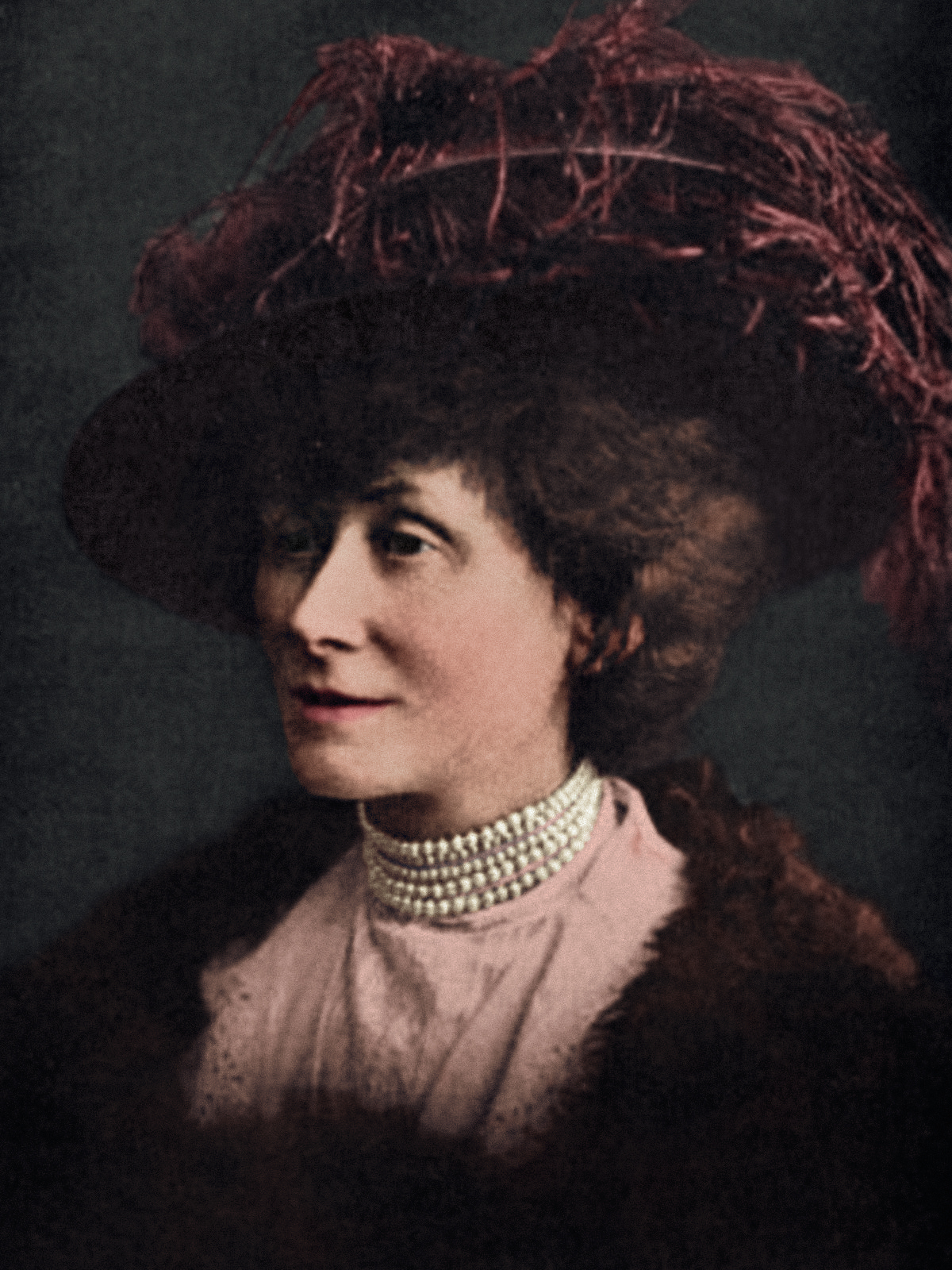
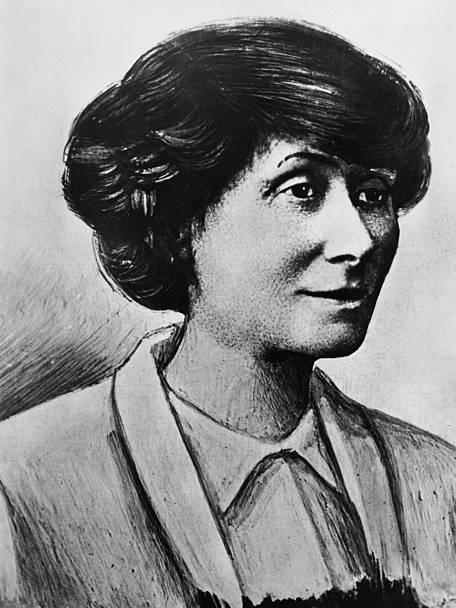
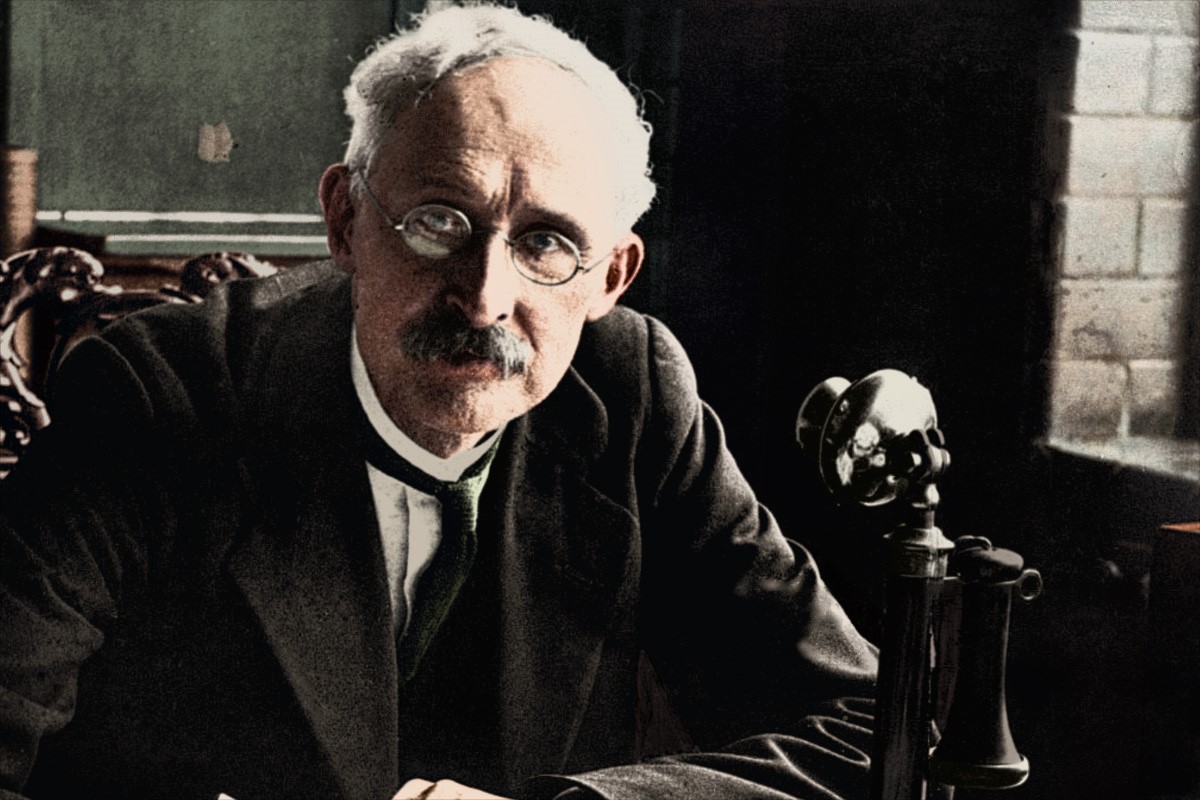
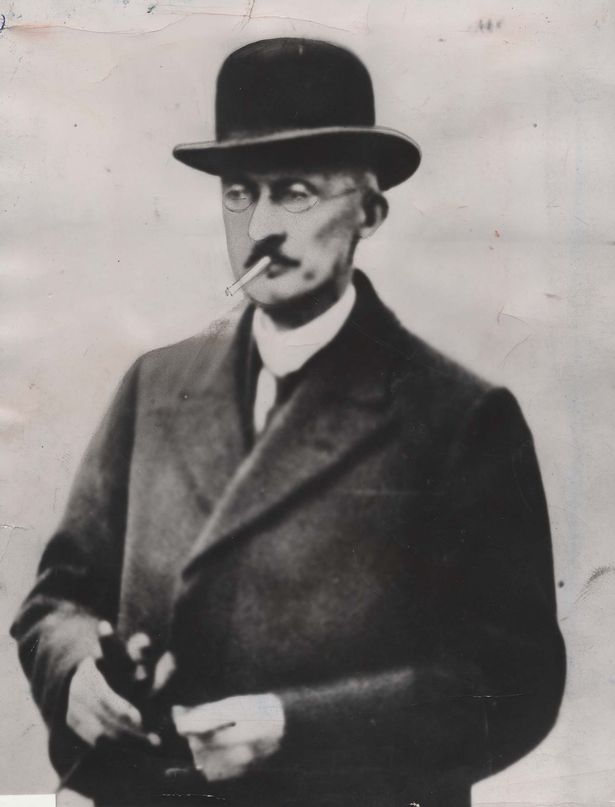
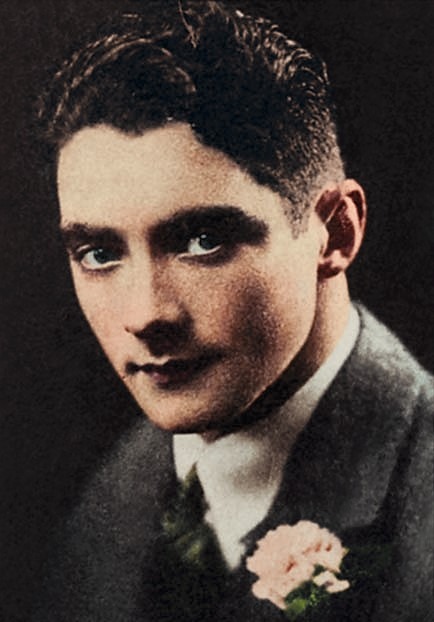
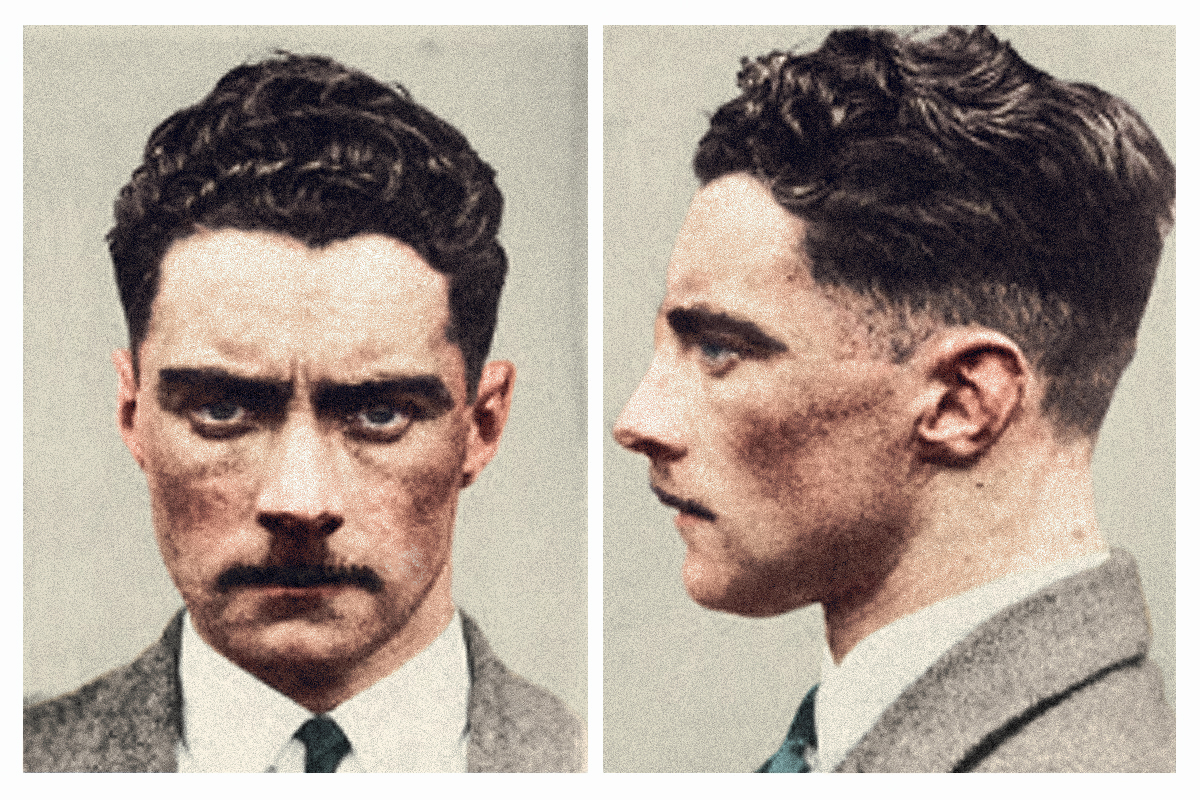
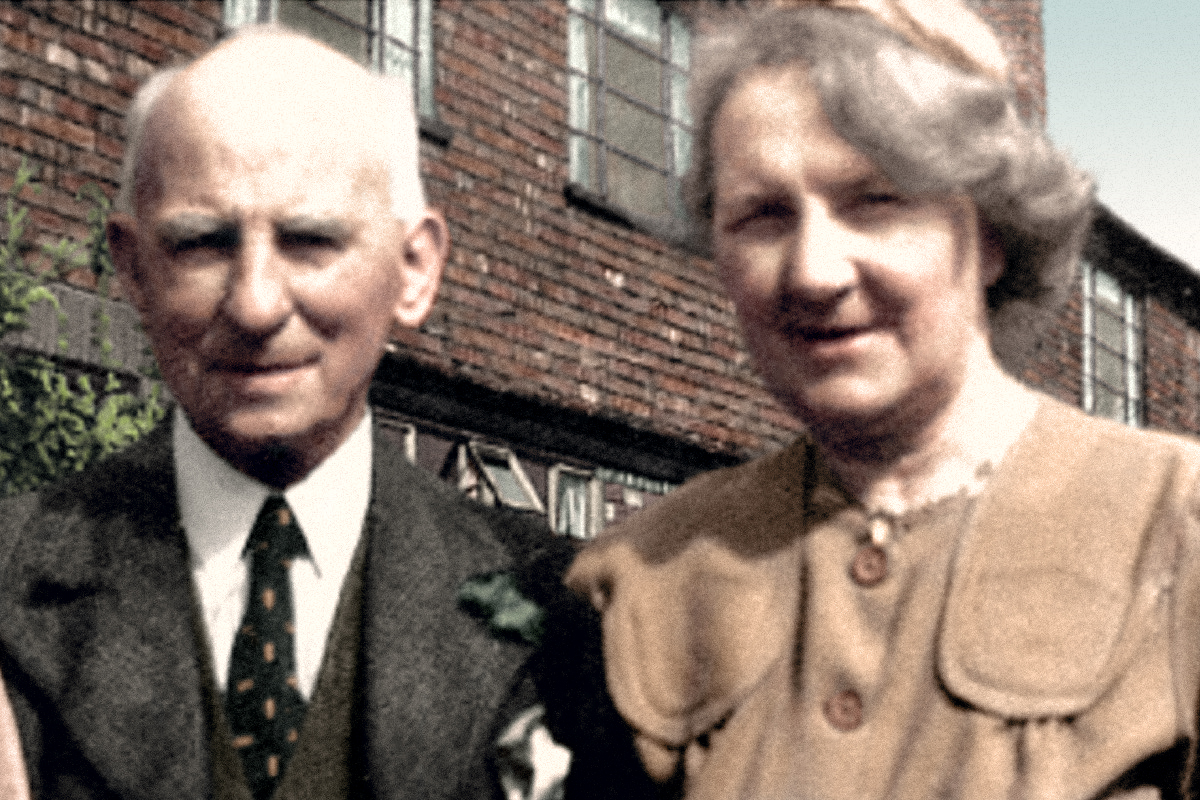
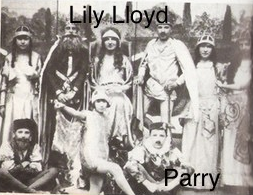
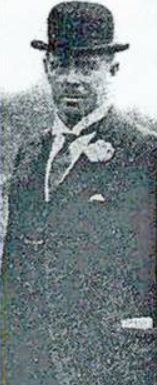
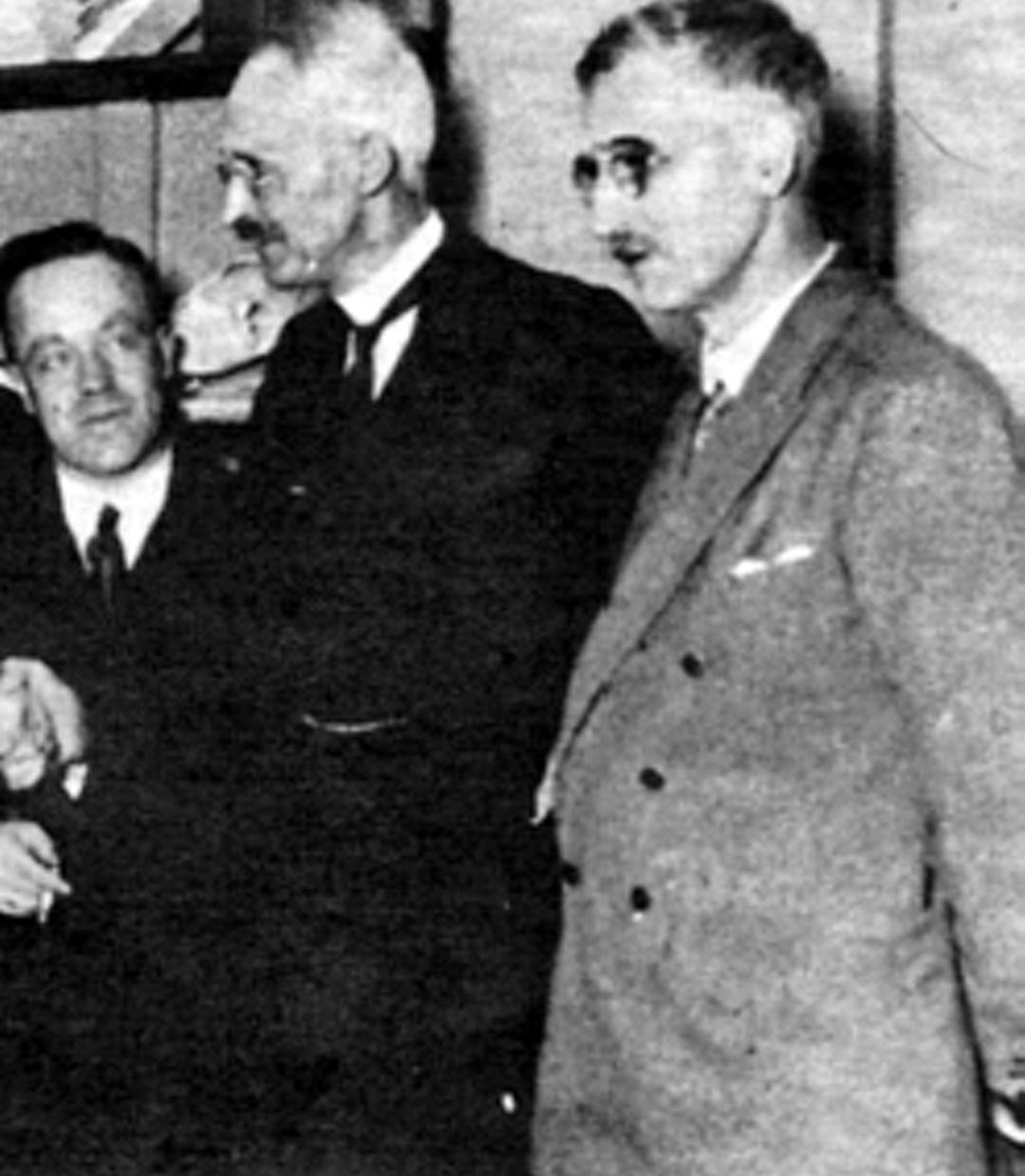
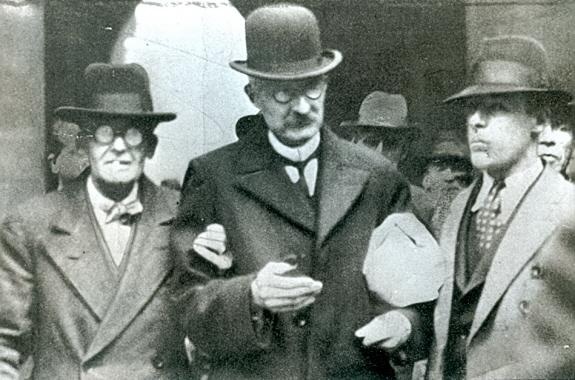
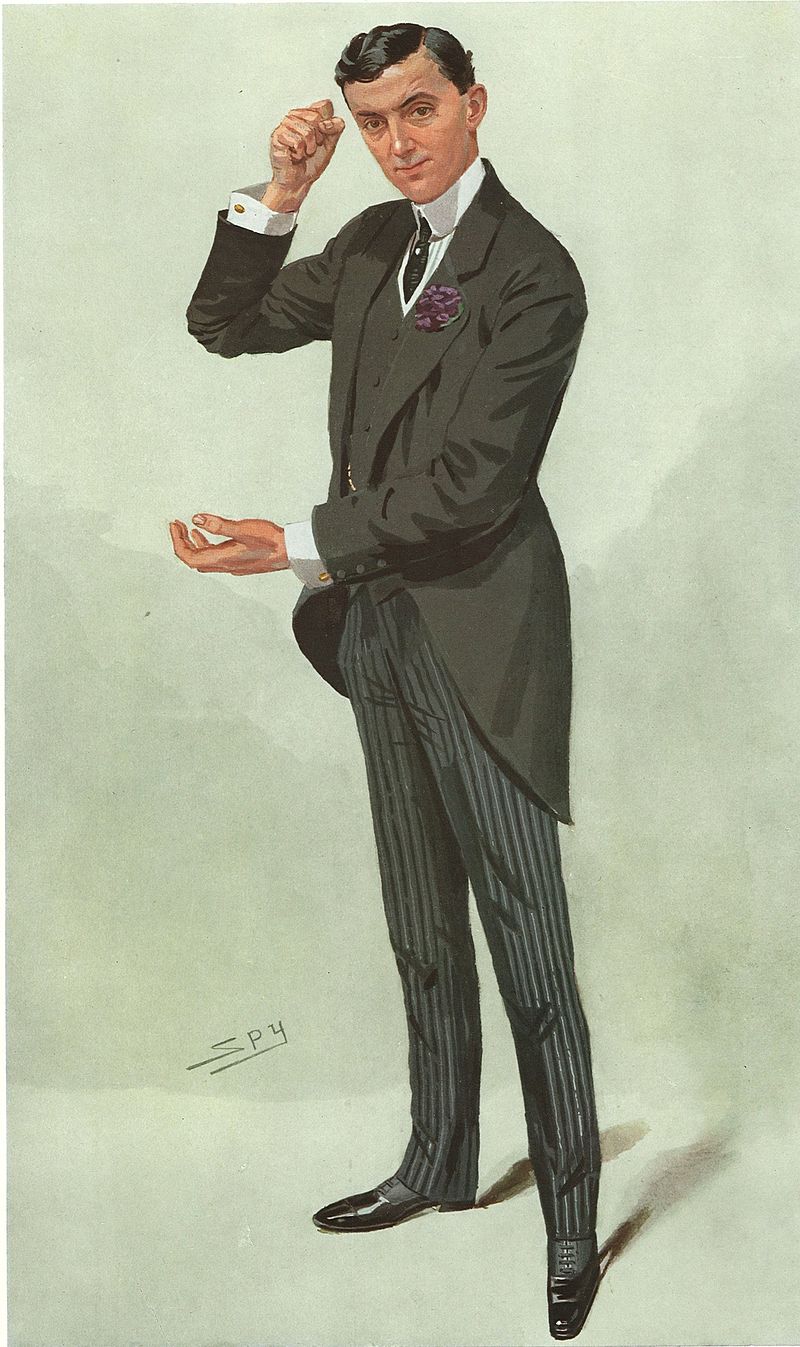
There’s a mistake at the beginning of this page. It says that Julia Wallace was murdered on December 20, 1931 INSTEAD of the correct date, January 20th.
Thanks, fixed.